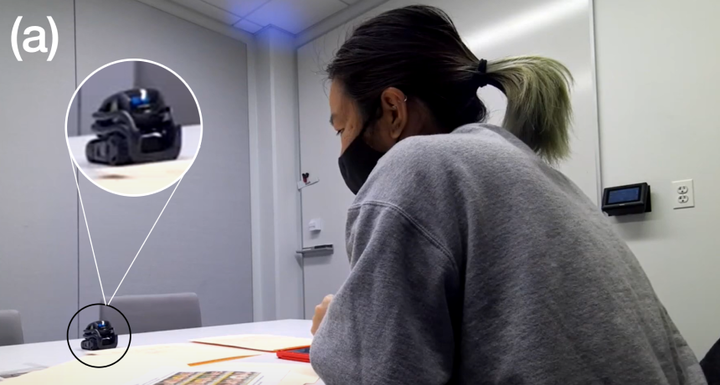
Abstract
Robots are becoming increasingly prominent in the entertainment sphere, where they interact with guests in themed environments to tell stories, often in place of human characters. To evaluate the potential benefits of robots in these contexts compared to humans, we created an interactive puzzle game where either a robot or a human actor serves as a diegetic “game guide” character that is both a cooperative partner and an omniscient game master. In the game, participants solve a crime mystery by asking the game guide for information to complete tasks and for hints to solve puzzles. We conducted a between-subjects study (n=42) to investigate how players' game experiences differed when the game guide was a human compared to an embodied robot. Our results show that participants playing with a robot had more fun, felt less judged, and felt more connected with the robot while solving tasks compared to those playing with a human. These results suggest that robots can be effective alternatives to human actors in broader immersive entertainment contexts such as escape rooms to provide greater enjoyment and promote more social interaction with in-game characters.